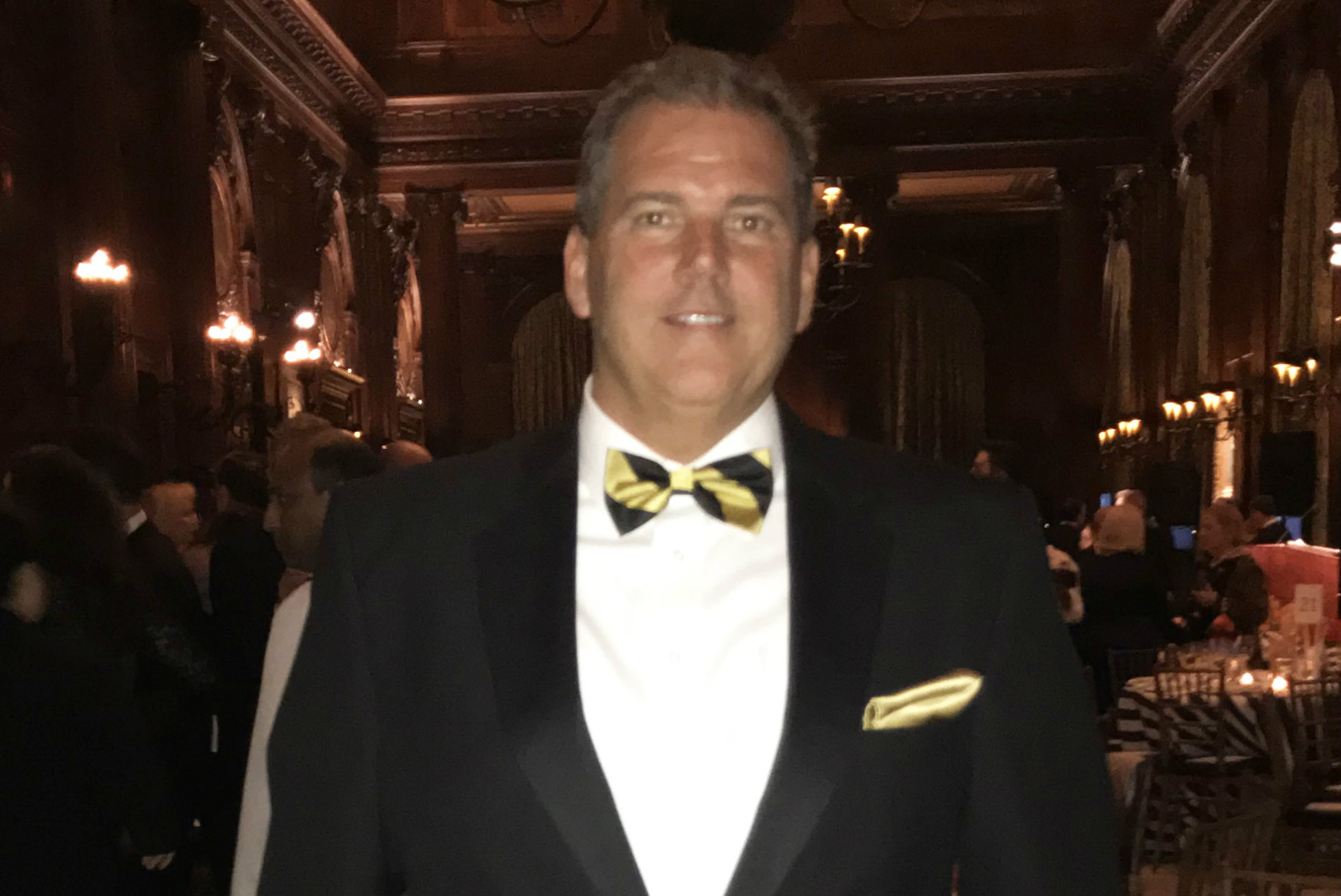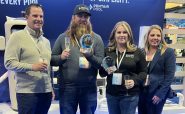It may seem that Bill Drakeley took a roundabout path to the headlines he’s recently appeared in.
Among the Genesis crowd, Bill Drakeley has been a prominent name practically since the design-education organization started. There, he served not only as the group’s concrete specialist, but also its deputy director of education.
In the world of concrete placement, Drakeley also has maintained a noticeable profile, considered by the wider concrete community as perhaps the most proficient handler of that material that the pool and spa industry has to offer.
But in the wider pool/spa industry, he recently became known as half of the duo that departed Genesis to establish a new school. In August, he and Genesis Education Director David Peterson left their respective posts to start Watershape University. With the new change of ownership for Genesis, and after spending the past several months sharing education and training between their two companies, the two decided they make a good team.
“I’ve never worked with a partner who I’ve respected more than Dave Peterson,” Drakeley says. “Talk about the top of the food chain as far as what he does and the person he is.”
While some may just be familiarizing themselves with Drakeley’s name, his roots run deep — in the industry and at the place he calls home.
All in the family
Save for the years he spent earning his bachelors degree in business administration with a marketing emphasis, Drakeley has spent his entire life in Woodbury, Conn. He was born there, he was raised there, and he brought up his four children there.
“It’s New England,” he says when asked why he’s never moved. “It’s got four seasons; it’s a gorgeous part of the country. It’s where the country was founded — I live on a street that Ben Franklin surveyed and laid out!”
But the reasoning goes even deeper than that — 10 generations deep, in fact. The Drakeleys and 11 other families actually founded Woodbury in 1659.
Bill Drakeley expects the town to serve as home base for some time. “I live in a big Victorian house, and I’ll never sell it,” he says. “My kids love it, and they’re going to come back and use it as their safe space or their launching pad for different ventures. I’m thrilled with that.”
His roots in the pool industry also go back near its beginnings. While his father’s family established the town, a local pool dynasty sprang from his mother’s side. Drakeley’s grandfather, Joe Scott, began Scott Swimming Pool Company after serving in World War II. From that company, which still exists, sprang not only Bill Drakeley’s company, Drakeley Pool Co. in Bethlehem, Conn., but also Glen Gate, started by his uncle Joe Scott Jr., and Group Works, owned by his cousin Jamie Scott.
Between his grandfather’s pool company and his mother’s swimming and tennis club, Drakeley and his four siblings started earning their keep early on. “In the summers, we were either working at the construction company or the club, but we were always working,” he says. “When we weren’t working, we were playing football, basketball and baseball, because my dad was a coach. I was always outside doing something with my hands.”
This also largely explains why he remained in the family business. As a college student and recent graduate, that was not the plan. “I did not want to go back to the construction company,” he says. “It’s hard work. I wanted to hang out with all the guys in suits and ties in Boston making a killing.”
But there’s always the other side of the story, which he came face to face with in tenure as a banker. “I was there for a good year and a half until I just about threw the chair through the window,” he says. “I could not stand sitting inside and listening to people and looking at this ladder you had to climb to get to a certain level.”
He worked for his uncle’s company, Glen Gate, for a while, then took a position at Scott Swimming Pool Company, heading up commercial sales and construction, as well as service and renovation.
He opened Drakeley Pool Co. in 2000. Now, he owns at least a part of four companies — Drakeley Pool; Drakeley Industries, which provides consulting, instruction and monitoring of shotcrete application in many fields; part of Deovlet Wines in San Luis Obispo, Calif.; and half of Watershape University.
Industry cred
In addition to his time with Genesis and, now, Watershape University, Drakeley serves on the boards of the Northeast Spa and Pool Association and the Connecticut Swimming Pool Association.
But he takes particular pride in his achievements with the American Shotcrete Association and the American Concrete Institute. He was previously ASA president and is the only pool builder to serve as a voting member on the committee that writes ACI’s shotcrete standard. But through his example, other pool builders are beginning to come up through the ranks.
One of the projects currently closest to his heart is serving as chair of ACI’s Pool Shotcrete Subcommittee, which is currently writing the organization’s first standard specifically for pool and spa shotcrete. The standard, ACI 506-OH, will become the basis for codes and standards, as well as establishing best practices cited in lawsuits. Drakeley composed the committee so that approximately half its members come from the pool/spa industry, while the other posts are filled by engineers, academics and other concrete/shotcrete specialists.
Among other things, Drakeley says, the standard should officially put to rest the debate about compressive-strength minimums for pool/spa shotcrete and gunite. The standard will state it as 4,000 psi, based on existing ACI standards and guidelines.
“I want to make sure not only that everybody is speaking the same language and doing the right thing, but that there’s no confusion,” he says. “All the opinions in the pool industry have made it nothing but murky waters — there’s no clarity.”
He expects the standard to be finalized in approximately 18 months.
With the standard and his work on Watershape University, Drakeley hopes to elevate the industry in terms of true skills and craftsmanship, as well as perception.
“It comes down to credibility,” he says. “The pool industry does not get the credibility it deserves. Nobody gets how difficult it is to put a concrete swimming pool in an area that has a 100-degree temperature differential and isn’t supposed to crack.
“Having a credible occupation will not only help the people in business nowadays — it’s going to help everybody for now and the next generations.”




